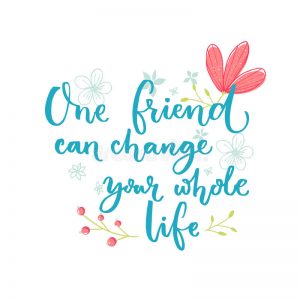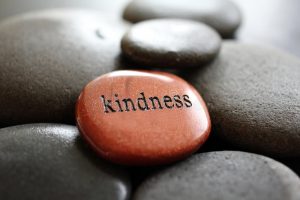 Sometimes scientific research produces results that are amazing, and sometimes the end result of all that time and money spent is simply duh-mazing. The conclusion is so obvious any one of us could have arrived at it ourselves.
Sometimes scientific research produces results that are amazing, and sometimes the end result of all that time and money spent is simply duh-mazing. The conclusion is so obvious any one of us could have arrived at it ourselves.
For example, friendship has been the topic of many research studies over the past few decades. One Harvard study followed a class of graduates for 80 years to determine, among other lifestyle factors, how friendship affected their well-being. Other friendship studies Google lists cover how long it takes to make a friend, what attracts one person to another in a friendship-building sort of way, how marriage partners often value their friendship over their sex life, and even how friendship can make the difference in later years in the fight against isolation and loneliness. This is all well and good, but didn’t we know this before? Anyone with even one friend reaps the benefits and knows the value of friendship. Do we really need scientists to tell us it’s important?
 Another topic for research? Gratitude. Studies show that grateful people are generally less depressed, less stressed, and for the most part happier than people who fail to recognize all the many things in their lives for which to be thankful. Robert A. Emmons, Ph.D., wrote a book titled Thanks! How Practicing Gratitude Can Make You Happier. In the book the author, who is editor-in-chief of the Journal of Positive Psychology—examines “what it means to think and feel gratefully and invites readers to learn how to put this powerful emotion into practice.” Scientifically speaking, Emmons states, “regular grateful thinking can increase happiness by as much as 25 percent.” I read enough of the book to say the material is well-presented and interesting, and I’m sure his study is empirically sound, but for the most part I already knew that. You?
Another topic for research? Gratitude. Studies show that grateful people are generally less depressed, less stressed, and for the most part happier than people who fail to recognize all the many things in their lives for which to be thankful. Robert A. Emmons, Ph.D., wrote a book titled Thanks! How Practicing Gratitude Can Make You Happier. In the book the author, who is editor-in-chief of the Journal of Positive Psychology—examines “what it means to think and feel gratefully and invites readers to learn how to put this powerful emotion into practice.” Scientifically speaking, Emmons states, “regular grateful thinking can increase happiness by as much as 25 percent.” I read enough of the book to say the material is well-presented and interesting, and I’m sure his study is empirically sound, but for the most part I already knew that. You?
 And then there’s the subject of kindness. A recent AP article on kindness reported that a University of California Riverside psychology professor conducted numerous experiments over 20 years and “repeatedly found that people feel better when they are kind to others, even more than when they are kind to themselves.” Subjects who went out of their way to do an extra three acts of kindness each week for others, even small things like opening a door, “became happier and felt more connected to the world.” OK, then. No surprises there!
And then there’s the subject of kindness. A recent AP article on kindness reported that a University of California Riverside psychology professor conducted numerous experiments over 20 years and “repeatedly found that people feel better when they are kind to others, even more than when they are kind to themselves.” Subjects who went out of their way to do an extra three acts of kindness each week for others, even small things like opening a door, “became happier and felt more connected to the world.” OK, then. No surprises there!
As I read the results from all these studies I couldn’t help but think our mothers were right. To make a friend be a friend. Be thankful for what you have and express your gratitude to others. Treat people the way you want to be treated (The Golden Rule). In other words, find a friend, be grateful for that friend, do something kind for that friend…and be happy! No scientific study required.

I love friends. And you are one of them.
And you’re one of mine, Betty. Stay well.
Thanks friend
And thanks for being my friend!
Thanks, Nancy. Sometimes I wonder if Common Sense is common!
You and me, Sue!
And I check you in all three categories, dear Nancy!
Always appreciate your clean, crisp and refreshing observations on life.
Thank you, friend!
Nancy, I am truly grateful that you are my wise, fun, and well-studied friend. Thanks for another insightful and upbeat post. You continually refresh us!
Thank you for being a faithful reader, Beth!
Nancy, I’m reminded of two simple words I heard and used throughout 20 years of church work with toddlers: “Play nice.” Doesn’t that about cover it without scientific research? Keep up your great work.
That definitely sums it up, Peggy!